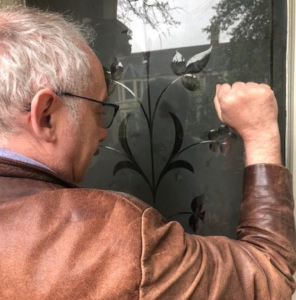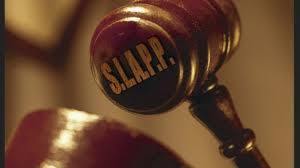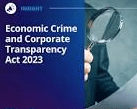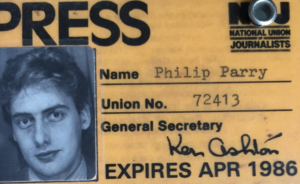- Tears of a clown - 4th July 2025
- Best of enemies part one - 3rd July 2025
- Disabling protests again - 2nd July 2025

During a 40 year journalistic career (when he was trained to use simple language, avoiding jargon), for our Editor, Welshman Phil Parry, dealing with lawyers has always been central to ensure publications are legally watertight, and now he looks on with growing horror as new figures show a rise in wealthy individuals turning to the law to suppress news about them, amid mounting dissatisfaction that an act designed to make information more open has huge loopholes in it.
Earlier he described how he was assisted in breaking into the South Wales Echo office car when he was a cub reporter, recalled his early career as a journalist, the importance of experience in the job, and made clear that the‘calls’ to emergency services as well as court cases are central to any media operation.
 He has also explored how poorly paid most journalismis when trainee reporters had to live in squalid flats, the vital role of expenses, and about one of his most important stories on the now-scrapped 53 year-old BBC Wales TV Current Affairs series, Week In Week Out (WIWO), which won an award even after it was axed, long after his career really took off.
He has also explored how poorly paid most journalismis when trainee reporters had to live in squalid flats, the vital role of expenses, and about one of his most important stories on the now-scrapped 53 year-old BBC Wales TV Current Affairs series, Week In Week Out (WIWO), which won an award even after it was axed, long after his career really took off.
Phil has explained too how crucial it is actually to speak to people, the virtue of speed as well as accuracy, why knowledge of ‘history’ is vital, how certain material was removed from TV Current Affairs programmes when secret cameras had to be used, and some of those he has interviewed.

He has disclosed as well why investigative journalism is needed now more than ever although others have different opinions, how the coronavirus (Covid-19) lockdowns played havoc with media schedules, and the importance of the hugely lower average age of some political leaders compared with when he started reporting.
Things are, unfortunately, getting worse – both for investigative journalists like me, and members of the public.

New figures show that rich people are turning in growing numbers to an arcane legal measure in order to stop information about them being made public.
The Solicitors Regulation Authority has released statistics which reveal that the use of Strategic Lawsuits Against Public Participation (SLAPPs) rose in 2022, but that this has been mirrored with a significant number of complaints about them – 60 over the past two years alone.
 In those 60 there are 51 active investigations into the use of SLAPPs, and high-profile individuals are using the threat of litigation more and more to close down legitimate journalistic inquiry in recent years, particularly in relation to looking at the background of Russian oligarchs after the invasion of Ukraine.
In those 60 there are 51 active investigations into the use of SLAPPs, and high-profile individuals are using the threat of litigation more and more to close down legitimate journalistic inquiry in recent years, particularly in relation to looking at the background of Russian oligarchs after the invasion of Ukraine.
This issue has led to the first anti-SLAPP law, which is included in the recently-passed, Economic Crime and Corporate Transparency Act (ECCTA), and gives judges the power to throw out absurd SLAPP applications, that are only designed to protect suitors in libel cases during alleged economic crimes.


This increase is extremely worrying, as it seems to show that wealthy individuals are increasingly turning to lawyers (sometimes their own) to prevent information about them from coming out into the open that they would rather keep under wraps.
The situation for journalists in securing details about the behaviour of companies or governments is no less alarming.
 For example The Freedom of Information Act 2000 (FOIA) is an almost useless gimmick, as attempts are made using its loopholes (along with the use of ‘SLAPPs’) to stop disclosure to the public of important facts. It was put on the statute book to fulfil a campaign promise from the then UK Labour Government, and it is a pale imitation of the version in the USA.
For example The Freedom of Information Act 2000 (FOIA) is an almost useless gimmick, as attempts are made using its loopholes (along with the use of ‘SLAPPs’) to stop disclosure to the public of important facts. It was put on the statute book to fulfil a campaign promise from the then UK Labour Government, and it is a pale imitation of the version in the USA.
There are actually TWENTY THREE official exemptions, which organisations can use to avoid giving crucial details. On many occasions I have been called “vexatious”, when giving vital truths has been formally denied using those exemptions in the FOIA.

For instance, the ironically-named ‘Disclosure Unit’ of controversial South Wales Police (SWP) have refused to give details of a huge alleged bribery investigation in which contentious Swansea University (SU) was at the heart.
It followed creation of the £200 million (much of it public money) ‘Llanelli Wellness and Life Science Village’ (Delta Lakes) project, rebranded as ‘Pentre Awel – Breezy/Windy Village’, and it formed part of the £1.3 billion Swansea Bay City Region Deal (SBCRD), which was run in partnership with SU as well as Hywel Dda and Abertawe Bro Morgannwg health boards. 86 acres of land at Delta Lakes had planning permission, and the giant venture was to have included research, with business development facilities, a state-of-the-art care home as well as an assisted living and rehabilitation centre, outdoor leisure space, a wellness hotel, and a new leisure centre.

However a statement about it from SU declared: “The police have confirmed to Swansea University that there was evidence of potential criminal offending identified and secured against individuals and companies subject to their enquiry…The university’s decision to dismiss (a key official) was based on serious breaches of Swansea University procedures and was never dependent on a criminal investigation by the police or decision to prosecute by the CPS (Crown Prosecution Service)“.

During the police inquiry, properties in Swansea, Carmarthenshire and Kent were searched. SWP said the Regional Organised Crime Unit (Tarian) executed “a number of warrants as part of an investigation into alleged bribery offences. Seven (then eight) addresses in Swansea, Carmarthenshire, and Kent are being searched with the assistance ofcolleagues”. The searches involved officers from SWP, Dyfed Powys Police and Kent Police forces, yet The Eye were alone in disclosing the properties raided by the police.


The SWP’s, so-called ‘Disclosure Unit’, though, seemed LESS willing to give this kind of information, through an FOIA.
It said to my journalists: “Your request has been considered and we are not obliged to supply…information. The following exemptions apply: Section 30(1) – Investigations and Proceedings Conducted by Public Authorities. Section 40(2) – Personal Information”.

There was no luck either in getting information on this scandal from the Crown Prosecution Service (CPS), to which the police report about it was sent. A ‘Ms J Fasulo‘ in the CPS mis-named ‘Information Access Team’ said: “On balance I consider the public interest favours maintaining the exemption”.
Yet these organisations are not alone.

ANOTHER university (this time in England) has a special section of its policy given online, which is headlined ‘EXEMPTIONS’.
It proclaims: “There are 23 exemptions under the Freedom of Information Act 2000, that may mean we are not able to disclose the information. There are two types of Exemption: Absolute, and Non-Absolute. Non-Absolute Exemptions require a Public Interest Test. This is where we must decide whether it is in the public interest to disclose the sensitive information or to withhold it.”

The document (which WASN’T secured using an FOIA!) continues: “You can refuse an entire request under the following circumstances:
- It would cost too much or take too much staff time to deal with the request.
- The request is vexatious.
- The request repeats a previous request from the same person.

“In addition, the Freedom of Information Act contains a number of exemptions that allow you to withhold information from a requester. In some cases it will allow you to refuse to confirm or deny whether you hold information. Some exemptions relate to a particular type of information, for instance, information relating to government policy. Other exemptions are based on the harm that would arise or would be likely arise from disclosure, for example, if disclosure would be likely to prejudice a criminal investigation or prejudice someone’s commercial interests.

“There is also an exemption for personal data if releasing it would be contrary to the UK General Data Protection Regulation (the UK GDPR) or the Data Protection Act 2018 (the DPA2018). You can automatically withhold information because an exemption applies only if the exemption is ‘absolute’. This may be, for example, information you receive from the security services, which is covered by an absolute exemption. However, most exemptions are not absolute but require you to apply a public interest test. This means you must consider the public interest arguments before deciding whether to disclose the information. So you may have to disclose information in spite of an exemption, where it is in the public interest to do so.”

I would argue that it is ALWAYS in the public interest to hear details about a police alleged bribery investigation involving millions of pounds of money. But according to FOIA sections 30(1), 40(2), and 17 as well as other ones, it isn’t.
Included in bizarre regulations like these should be SLAPPs – and now we know that increasing numbers of people are hearing about them, so giving their lawyers a growing amount of work to do!

The memories of Phil’s journalistic career (when he had to overcome high, although fewer, legal barriers at the beginning) as he was gripped by the rare and incurable, neurological disabling condition Hereditary Spastic Paraplegia (HSP), have been released in a major book ‘A Good Story’. Order it now.
Regrettably publication of another book, however, was refused, because it was to have included names.
 Tomorrow – how confirmation that the former head of the Post Office (PO) has handed back her CBE, and that legal options are now being explored to clear completely hundreds of innocent sub-postmasters caught up in the enormous Post Office IT scandal, again shines the spotlight on the huge role played by Wales.
Tomorrow – how confirmation that the former head of the Post Office (PO) has handed back her CBE, and that legal options are now being explored to clear completely hundreds of innocent sub-postmasters caught up in the enormous Post Office IT scandal, again shines the spotlight on the huge role played by Wales.








